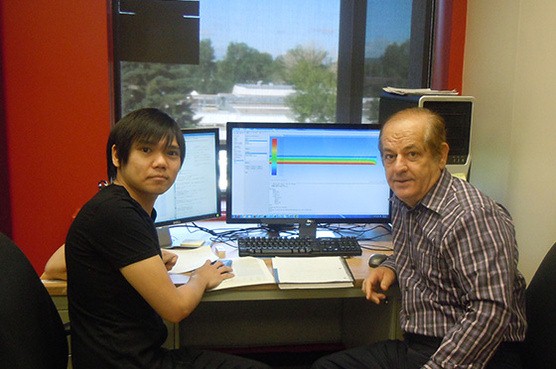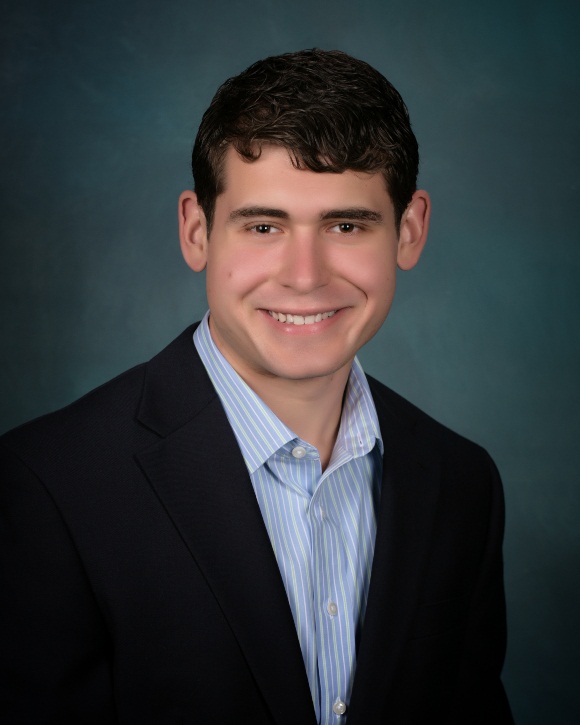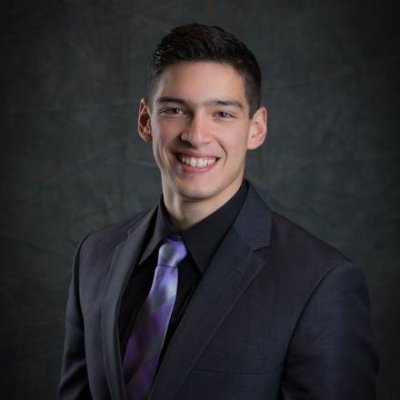Collegiate Council: Gaining a Network
Collegiate Council: Gaining a Network
A major obstacle for most Engineering graduates is getting experience which sets them apart from their peers for a particular career path. Early opportunity to network and be mentored in a specialized field is usually what helps some avoid this predicament. A remarkable example of this opportunity is joining ASME Petroleum Division’s Collegiate Council. If you are an undergraduate or graduate student looking to get involved with the Oil and Gas industry, the Collegiate Council offers this kind of experience.
I caught up with some of the Collegiate Council’s 2014-2015 alumni to talk about how their graduate work, undergraduate experience, and career path in the petroleum industry has been impacted by being a part of the Collegiate Council.

Hsu Lee is a doctoral student at the University of Calgary, who heard of the Collegiate Council through his professor. Even though Hsu’s main reason for applying was to network, he discovered that there were other facets to the council experience which he benefitted from. Such as tours of companies like Technip. He says, the most memorable part of this was that, “they amazed us by demonstrating and explaining the complexity of subsea systems with intricate 3D physical models.”
Hsu’s responsibilities as a graduate student have been supplemented by information gained through joining the council. Before joining, Hsu’s research used sophisticated and complex ways of solving problems which was thought to bring recognition by the scientific community. However, he learned that professionals in industry, who used these solutions, wanted simplicity. Hsu says, “[The council] had changed the way I conduct my research, where I now try to find a balance between [academic] recognition and the complexity level of the solution to narrow the gap between academia and industry.” In addition, Hsu teaches undergraduate courses at his university. Hsu explains that he is, “actually working on revamping an undergraduate course (Fuel Science and Technology) at my university with the knowledge and experience gained through the council.”

For good contrast, Russell Locetta, a mechanical engineering undergraduate from the University of Arkansas, learned about the Collegiate Council by doing research on ASME. “As I researched, I noticed the many divisions of ASME, cover every facet of what mechanical engineers can do after completing their degrees,” Russell says. Since he had prior interest and experience in the Oil and Gas industry the Petroleum Division’s council was a perfect fit.
After becoming a council member, Russel recognized that a main takeaway of the council was mentorship. “Our mentors represented a variety of different sectors of our crucial industry, and their combined experience further reinforced our existing passions for the petroleum industry,” Russell explains. With such mentorship, the council’s activity influenced Russell to seek leadership opportunities. Russel began by engaging his university’s faculty which followed by being named, “Oil and Gas Student Coordinator,” he explained. He was later elected as the director of the Collegiate Council which gave Russell the opportunity to lead others in various time zones. In regards to plans for the 2015-2016 school year Russell says, “There are events already in the works to bring students together and increase ASME’s footprint both at my university and throughout the US.”
Lastly is the alumna Juan Bastardo, an intern for British Petroleum (BP) and graduate of Texas A&M University. Juan joined the Collegiate Council after hearing about it from his fellow officers at his university’s ASME section. Using site tours and interacting with professionals as examples, Juan tells us that, “the council really provided me the tools I needed to expand my knowledge of the industry to gauge how I could see myself fit in ‘the big picture’.”

Within BP, Juan has been able to apply the lessons learned from the council. As of late, he works as a Drilling Engineer in the Gulf of Mexico. “The council helped me hone in on what group I wanted to support within the company and what kind of information I needed to familiarize myself with to be successful,” Juan explains. The understanding of his field has paid off dividends for Juan. He says, “This made the transition into this position smoother for me and I felt more prepared coming in than I would have if I had not received exposure to the collegiate council.”
From academic and professional perspectives Hsu, Russell, and Juan each benefited from joining the exclusive council. Whether one is researching, teaching, administrating, or working the opportunities afforded by ASME Petroleum Division’s Collegiate Council can be applied across the board.
Please visit the Petroleum Division’s Collegiate Council website to learn more about the council and how to apply. For more information also contact Javanni Kiezer. The council is limited to 15 seats.
.png?width=854&height=480&ext=.png)




